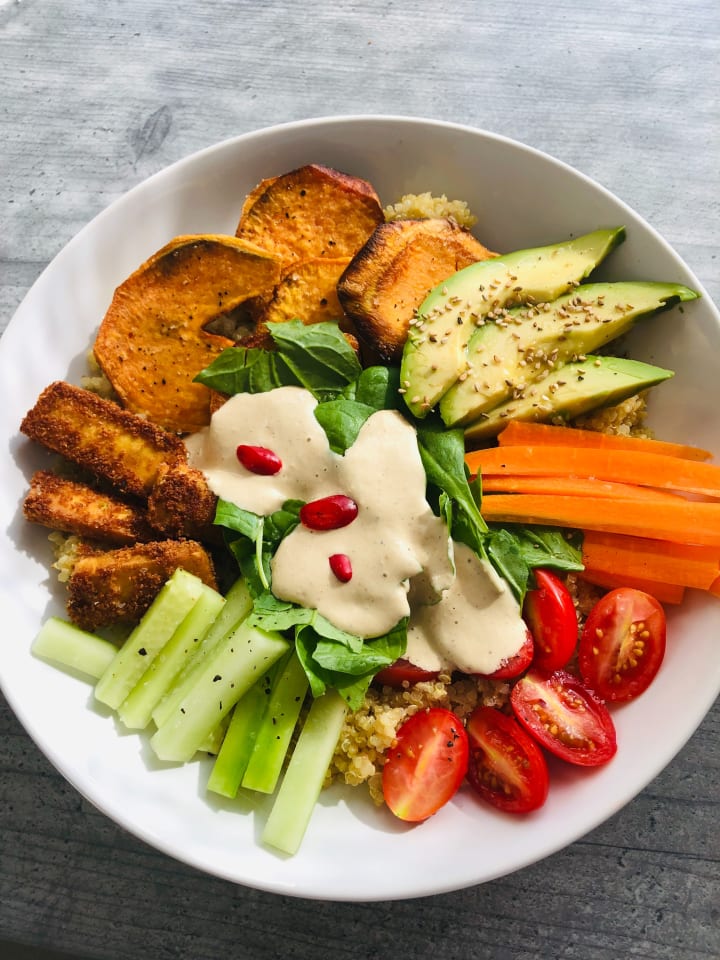The Complete Ketogenic Diet for Beginners — Your Essential Guide to Living the Keto Lifestyle
The Complete Ketogenic Diet for Beginners — Your Essential Guide to Living the Keto Lifestyle

The ketogenic diet, also known as the keto diet, has been getting some serious hype lately.
With so many benefits and very few drawbacks, it’s no wonder people are jumping on the keto bandwagon left and right! In this
A comprehensive Complete Ketogenic Diet for Beginners, we’ll cover everything you need to know about the keto lifestyle including The scientific basis behind the diet How to start and stay in ketosis Successful long-term weight loss The effects of keto on exercise performance and body composition Numerous keto recipes covering all meals of the day …and much more!
These are 9 things you should know before starting a Ketogenic Diet

- About the Ketogenic Diet
- What do I eat?
- How can I get started with a keto diet?
- What are some common mistakes people make when following a low carb, high fat, ketogenic diet?
- Does the Ketogenic Diet Help with Weight Loss?
- Is it safe?
- What is Paleo? Is it similar to a Low Carb Diet like Keto?
- Common Health Benefits of going on a Ketogenic Diet (and how they differ from other Diets)Common Health Benefits of going on a Ketogenic Diet (and how they differ from other Diets)
- Common Side Effects of Going on a Low Carb/Ketogenic Diet (and what you can do about them)
About the Ketogenic Diet

What is ketosis and how does it work? The keto diet, also known as the ketogenic diet or low carb diet, consists of a low carbohydrate but high fat intake.
By restricting carbohydrates (sugars and starches), your body is forced to burn stored fats instead of glucose.
This process produces chemicals called ketones that fuel your brain, reduce inflammation and help you feel full longer.
You can use our keto calculator to determine what macro ratios are best for losing weight. Best of all, meals taste delicious with very few carbs in them!
When Should I Eat Carbs on a Ketogenic Diet? Before going into why you should eat carbs on a ketogenic diet and when exactly those carbs should be consumed, let’s talk about what happens when you eat protein only, with no sources of complex carbohydrates — such as vegetables or whole grains.
2. What do I eat?

It’s a common misconception that you can eat whatever you want on a keto diet — but your choices are limited, especially at first.
Even seasoned low-carb dieters miss certain foods after cutting out carbohydrates completely.
This is where keto recipes come in handy; they’re specifically designed to be high in fat and protein with low amounts of carbs and sugars.
Although many keto recipes will fit within a traditional healthy diet, if you have diabetes or any other health conditions it’s important to check with your doctor before following them.
These ingredients may not work as well for those with metabolic conditions. As always, talk to your doctor before starting any new nutrition plan!
3. How can I get started with a keto diet/ketogenic diet?
There are many reasons why you might consider starting a keto diet. It could be because you’ve lost a significant amount of weight and you’re still not feeling great, or maybe you feel unhealthy and need to make some changes.
Or perhaps you just want to improve your overall health and aren’t sure how to go about it.
Regardless of why you want to start keto, one thing is certain: You’ll have more success if you follow a well-formulated plan.
(It’s also important that it fits in with your lifestyle, so consult with your doctor or a registered dietitian before getting started.)
The good news is there are plenty of resources available on the internet from websites, blogs, YouTube videos — even Facebook groups where people help each other succeed with keto!
4. What are some common mistakes people make when following a low carb, high fat, ketogenic diet?

There are several mistakes that people often make when transitioning into a ketogenic diet.
Here are some of them Not making sure your body has adapted before drastically changing your diet: The first week or two will be difficult, as you’ll need to allow time for your body to become accustomed to using fat as an energy source instead of carbs.
If you do go full force right out of the gate, chances are high that you’ll experience fatigue and other symptoms, which could mean giving up on keto and going back to eating carbs again.
5. Does the Ketogenic Diet Help with Weight Loss?
If you’re looking at going keto, it’s a good idea to understand how weight loss will fit into your lifestyle.
The goal of a ketogenic diet is to force your body into burning fat instead of carbs for energy.
While there are theories that consistently consuming a small number of carbs can help increase metabolic rate, eating too many high-carb foods is likely not ideal if you’re aiming to lose weight
6. Is it safe?
While following a keto diet can be safe if you’re careful, there are possible side effects when not done properly.
The keto diet is meant to switch your body from burning carbohydrates (glucose) as its primary fuel source over to fat. This process takes time and requires some trial and error.
It’s helpful if you have an understanding of basic nutrition, such as a well-balanced diet.
However, it should be kept in mind that just because a high-fat diet works for one person doesn’t mean it will work for another with similar goals.
If you want help adopting healthy eating habits, consult with your doctor or a nutritionist. Here are a few articles on how switching from carb-burning mode over to fat-burning mode
7. What is Paleo? Is it similar to a Low Carb Diet like Keto?
Paleo is considered a low carb diet in many ways because it limits what you can eat, but it differs because it also allows you to eat things that are naturally low in carbs.
For example, you’re allowed all sorts of fats like avocado and animal meats. You’re allowed an unlimited amount of leafy greens as well.
8. Common Health Benefits of going on a Ketogenic Diet (and how they differ from other Diets)
Burning fat instead of sugar for energy is great for improving insulin sensitivity and Type 2 Diabetes, weight loss from lowering overall calorie intake and reducing cravings, possible increased longevity due to health-promoting nutrient profile, mental clarity.
While you can get some or all of these health benefits on other diets (eg. Paleo), there are also potential downsides that come with a higher carbohydrate diet (such as weight gain).
Also, note that keto is different from Atkins. They’re both low carb diets but keto is a more strict approach because it restricts even healthy carbs. In contrast, Atkins focuses on total daily calories vs restricting carbs directly
9. Common Side Effects of Going on a Low Carb/Ketogenic Diet (and what you can do about them)
When you eat foods high in carbohydrates and sugar, your body produces insulin. Insulin is a hormone that keeps your blood sugar level from getting too high.
However, when you are following a ketogenic diet, your body needs to produce more insulin. When you increase insulin production, your body burns more fat instead of carbohydrates.
The side effects of going on a low carb/ketogenic diet can be uncomfortable in the first few weeks or months but tend to subside after as your body adapts metabolically.
Some common side effects include fatigue, headaches, constipation (although fibre intake helps), nausea and flu-like symptoms. These are all perfectly normal temporary reactions to eating fewer carbohydrates.
Fatigue: This often occurs at the beginning of a lower carbohydrate diet because glycogen stores need to become depleted before full benefits of ketosis will take effect; restricting carbs usually does help with energy levels over time though — don’t give up if it feels tough at first! Most people’s energy increases once they transition into fatty acid metabolism instead.
Headaches: During an initial low-carb transition period, headaches may occur while the body adjusts (mostly due to decreased consumption of sugars). But feel free to ignore claims that low-carb diets cause headaches — that idea has been largely discredited by scientists now!
About the Creator
Enjoyed the story? Support the Creator.
Subscribe for free to receive all their stories in your feed. You could also pledge your support or give them a one-off tip, letting them know you appreciate their work.






Comments
There are no comments for this story
Be the first to respond and start the conversation.